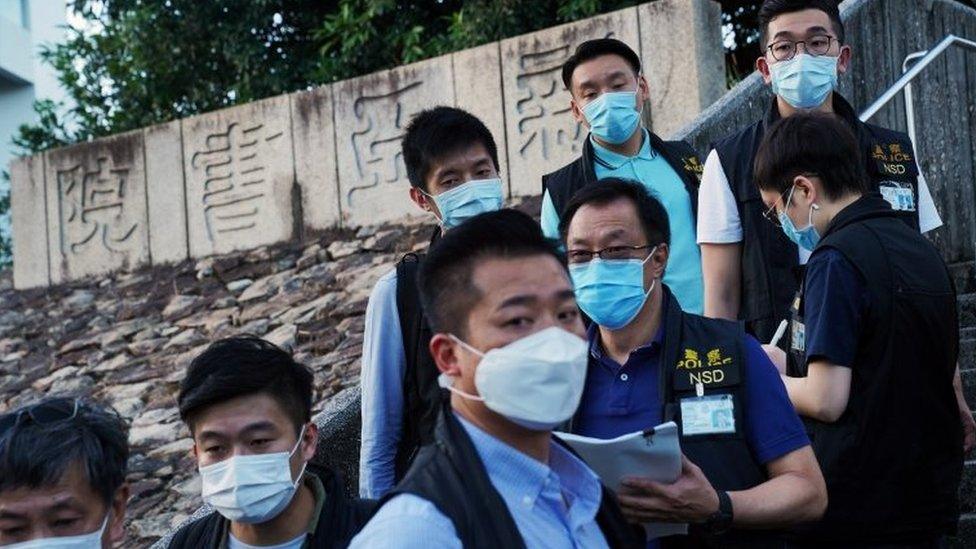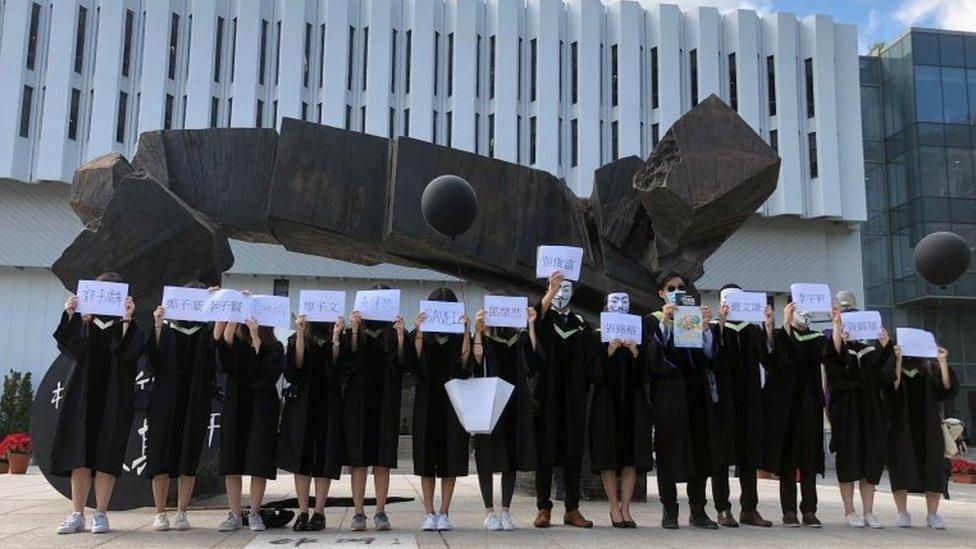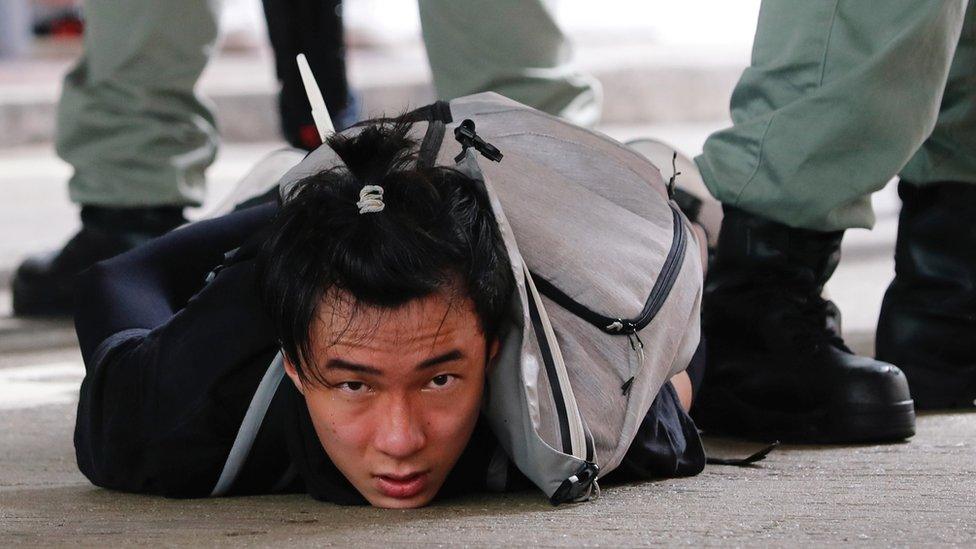Hong Kong: 'Secession' arrests after Chinese University protest
- Published

Police from the National Security Department went to the university the day after the protest
Eight people have been arrested in Hong Kong after a protest at a university last month, as authorities continue to impose a tough new security law.
Three were detained on suspicion of inciting secession, which can carry a maximum sentence of life in prison.
In recent weeks activists have been jailed or detained under the new law, legislation human rights groups say amounts to "repression".
The US on Monday sanctioned 14 more Chinese officials over the clampdown.
The Treasury Department froze the assets and restricted the travel of 14 vice-chairs of the Standing Committee of the National People's Congress, which passed the National Security Law for Hong Kong.
In August, Hong Kong Chief Executive Carrie Lam was among 10 officials from the territory and the mainland put under such sanctions. She later said she had to keep "piles of cash" at home as she had no bank account.
China and Hong Kong say the security law was needed to restore stability after chaotic pro-democracy protests but some Western nations, including the UK, say it has undermined the terms agreed ahead of the return of the territory's sovereignty from the UK to China in 1997.
Who has been arrested?
Three students were reportedly among the eight people detained in a police operation on Monday.
The eight, aged between 16 and 34, were accused of taking part in an unauthorised assembly.

Chinese University students hold up the names of the 12 people held in mainland China
Police told the South China Morning Post the three students had been detained on suspicion of inciting secession.
Five of the detainees, the Post said, are either graduates or alumni of Chinese University, including three district council politicians.
What happened at the university?
Just under 100 graduating students and others, some with black robes and balloons and wearing masks, protested peacefully at Chinese University campus last month.
Some shouted slogans similar to those used in protests last year but which now are illegal.
Police checked video footage the next day, reportedly with the agreement of the university's management.
The student union condemned the management's decision as an "outrage" that had destroyed trust with students.
Amnesty International accused Hong Kong authorities of carrying out a "sweeping repression" in educational institutions.
What's the background?
Dozens of people have been arrested under the National Security Law since it came into effect on 30 June.
Hong Kong security law: The BBC's Stephen McDonell explains what it means, and what people there think
The legislation introduced new crimes, including conspiring with foreigners to provoke "hatred" of the Chinese government or the Hong Kong authorities.
After the law was introduced, a number of pro-democracy groups disbanded out of fear for their safety.
A former British colony, Hong Kong was handed back to China under the so-called "one country, two systems" principle, which was supposed to guarantee certain freedoms for the territory for 50 years.
Critics of Hong Kong's government say those freedoms have now been eroded.
- Published1 July 2020
